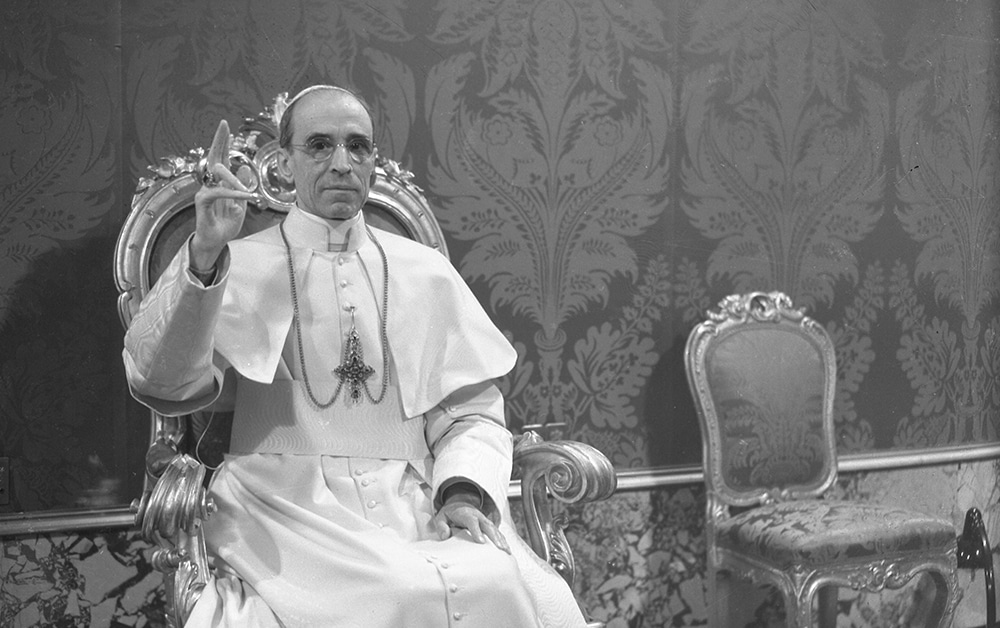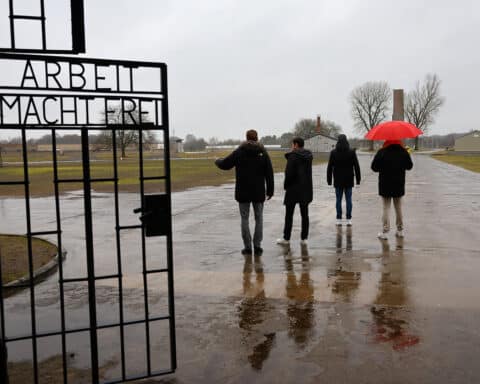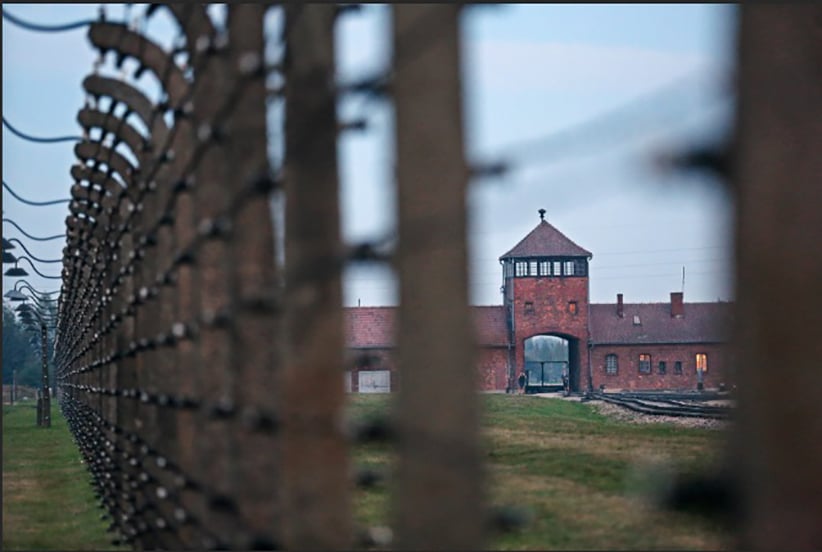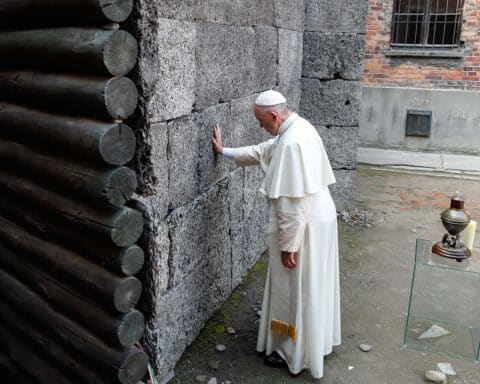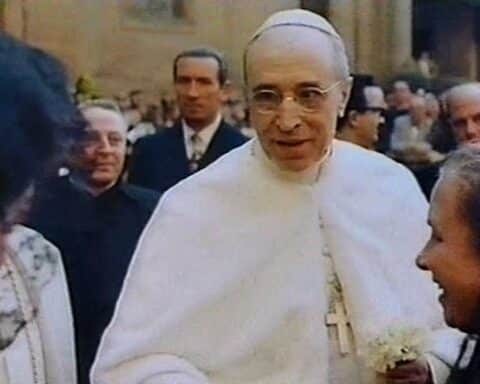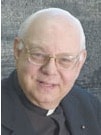
To give readers a clear idea of what had shaped Polish life in recent history, including the horrors that World War II brought upon Poland, I agreed to visit Auschwitz, the infamous German concentration camp on the outskirts of Krakow where millions of Jews were mercilessly imprisoned, and where millions of Jews and Poles were slaughtered.
My visit to Auschwitz was my first sight of one of the concentration camps, and it was not accidental. I had been near other camps in the past, but I had previously refused to go to any of them as I feared the injury the experience would inflict upon my psyche.
My fears were confirmed, and years later I am not over the shock. I cannot forget. After seeing Auschwitz, I had no appetite for food for several days. I had nightmares, and I never have nightmares. I did not want to talk about it. The sights clawed at my mind and at my heart.
To this day, whenever I hear someone say that the reports of the Holocaust are exaggerated, my feelings range from despair to fury. A word of informed advice: When mention of the Holocaust enters the conversation, assume the horror described by reports is understated. It cannot be imagined.
Not surprisingly, recalling the Holocaust strikes Jews with special cruelty — and of course they beg the question of where was the Catholic pope at the time?
So, it was good that Pope Francis set aside the policy of the Vatican Archives and is opening all records from the 1930s and 1940s for review. God willing, this action will result in a full understanding of Pope Pius XII’s reaction to what was happening to Jews at the time.
It may clear his name. It may prove that his judgment was not the best. Pius XII has been a source of controversy and target of criticism for a long time because of his responses to the Holocaust. Many historical records show that he not only opposed the persecution of Jews then underway but actively tried to rescue Jews from this persecution — as best he could.
Still, many think that he did not do enough. The research now enabled by Pope Francis should show precisely what he did, what else he could have done and all the factors that he had to consider. Had he pursued another course, for example, would he have aggravated the situation, meaning more deaths and more suffering? Or, would his public outcry have restrained the Hitler regime?
Whatever findings this research discloses, all will better know what occurred, and doubts and suppositions at least will be reduced.
The world will better know how satanic the Holocaust actually was. Hopefully this will be a lesson for the future, and all of us will realize how vicious bigotry is, and why it must be recognized and stopped in its tracks.
So, while Pius XII is the subject, the Church, in opening the files, is looking at the present and into the future as much as the past. Expressly, Pope Francis wishes to further the goodwill between Catholics and Jews that began with the outreach to Jews by Pope St. John XXIII and continued with his successors.
The Second Vatican Council’s formal statements and the subsequent Catechism of the Catholic Church powerfully added to this process. Noting Pope Francis’ recent action, a prominent American rabbi wrote that greater strides in building goodwill have occurred in the past 50 years than in the preceding 2,000 years.
This is good.
Msgr. Owen F. Campion is OSV’s chaplain.

